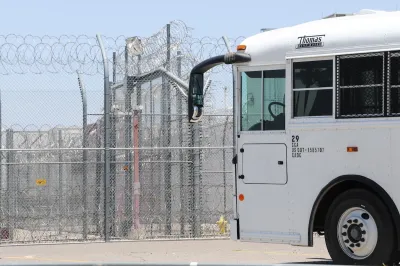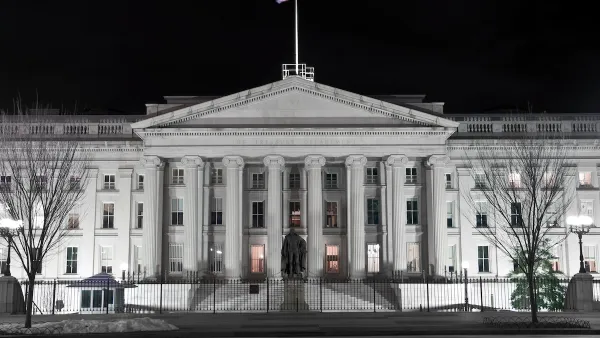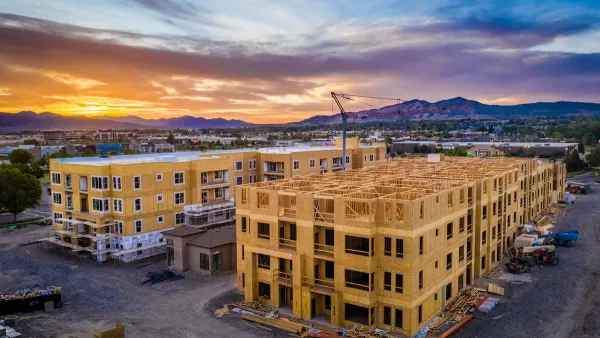People with criminal convictions are 10 times as likely to become homeless as others. Small policy shifts could change that.

A podcast episode from Next City explains how changes in local laws could help prevent people with criminal convictions from becoming homeless.
For a long time, the Department of Housing and Urban Development (HUD) has contributed to the problem by giving each local public housing authority (PHA) room to discriminate against people with convictions. In 2016, the agency published a memo clarifying that PHAs couldn’t have blanket prohibitions on all criminal offenses and providing screening criteria.
However, discrimination at public housing authorities still occurs, prompting HUD to issue a proposal this year that would bar PHAs from “categorically denying apartments because of criminal convictions.”
The episode goes into detail about how the housing crisis particularly affects people with convictions, who are almost 10 times as likely to experience homelessness than the general public. According to the Prison Policy Initiative, “Local PHAs can — and do — exercise a great deal of discretion when crafting and implementing their policies that determine who is and isn’t eligible for low-income public housing. While HUD provides guidelines on criteria for access and denial (24 CFR §982.553), individual PHAs often make their policies even more restrictive than the HUD recommendations.”
FULL STORY: We Can Just Decide Not To Evict People With Convictions From Public Housing

National Parks Layoffs Will Cause Communities to Lose Billions
Thousands of essential park workers were laid off this week, just before the busy spring break season.

Retro-silient?: America’s First “Eco-burb,” The Woodlands Turns 50
A master-planned community north of Houston offers lessons on green infrastructure and resilient design, but falls short of its founder’s lofty affordability and walkability goals.

Delivering for America Plan Will Downgrade Mail Service in at Least 49.5 Percent of Zip Codes
Republican and Democrat lawmakers criticize the plan for its disproportionate negative impact on rural communities.

Test News Post 1
This is a summary

Test News Headline 46
Test for the image on the front page.

Balancing Bombs and Butterflies: How the National Guard Protects a Rare Species
The National Guard at Fort Indiantown Gap uses GIS technology and land management strategies to balance military training with conservation efforts, ensuring the survival of the rare eastern regal fritillary butterfly.
Urban Design for Planners 1: Software Tools
This six-course series explores essential urban design concepts using open source software and equips planners with the tools they need to participate fully in the urban design process.
Planning for Universal Design
Learn the tools for implementing Universal Design in planning regulations.
EMC Planning Group, Inc.
Planetizen
Planetizen
Mpact (formerly Rail~Volution)
Great Falls Development Authority, Inc.
HUDs Office of Policy Development and Research
NYU Wagner Graduate School of Public Service





























